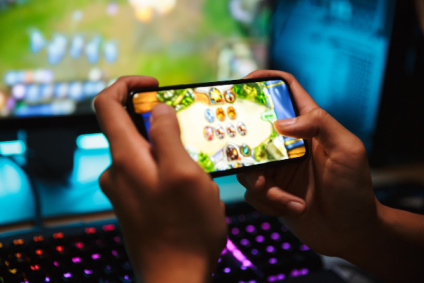
Always at Our Fingertips
Between computers, gaming consoles, and cell phones, games are within reach for nearly everyone at any time. For some it’s a harmless pastime, but for others it may become a serious problem or even an addiction.
Internet Gaming Disorder
The World Health Organization recognizes Internet Gaming Disorder (also referred to as Gaming Disorder) as a mental disease related to social anxiety and other addictive behaviors. It is characterized by a severe preoccupation with gaming that takes precedence over common daily activities, leading to dysfunction in relationships, education, and occupational responsibilities.
Recognizing the Signs
People suffering from Gaming Disorder may exhibit the following symptoms evident for a minimum of 12 months:
- • Preoccupation with gaming
- • Withdrawal symptoms when gaming is taken away or not possible (sadness, anxiety, irritability)
- • Tolerance, the need to spend more time gaming to satisfy the urge
- • Inability to reduce playing, unsuccessful attempts to quit gaming
- • Giving up other activities, loss of interest in previously enjoyed activities due to gaming
- • Continuing to game despite problems
- • Deceiving family members or others about the amount of time spent on gaming
- • The use of gaming to relieve negative moods, such as guilt or hopelessness
- • Risk, having jeopardized or lost a job or relationship due to gaming
Game Quitters
Video game addiction is recognized by the WHO as a real mental health condition. So what is video game addiction? What causes it? What are the warning signs? And what treatment options are available?
Matthias Dewilde
Matthias Dewilde overcame a long-lasting game addiction and co-founded GameChangers, a Belgian organization providing lectures, workshops, and therapy to help gamers and their families battle problematic game and tech use.
CTV W5
During the worst of the Pandemic, children and youth were turning to video games at an alarming rate. Sometimes with grave consequences. Canada’s W5 investigates how much is too much?
Are There Any Benefits to Gaming?
Like many habits, it is how one engages with gaming that determines whether it is harmful. In fact, studies have shown that engaging with games can actually be helpful in developing problem-solving skills, managing depression, anxiety, and even pain. You can learn more about the benefits of gaming in the videos below.
Jane McGonigal
Dr. Jane McGonigal, game designer and author of Superbetter, shares how gaming incentivizes players to behave like heroes, and how these habits can be harnessed to solve real-world problems.
Jane McGonigal
Dr. Jane McGonigal returns for another TedTalk, describing how video games are revolutionizing the treatment of pain, PTSD, and depression.
Amy Green
Amy Green discusses how creating a video game, which takes players on a journey they can’t win, helped her family and game players learn about coping with loss and bringing play to tragedy.
So What Should We Do?
While it’s reasonable to be concerned for the well-being of a loved one who appears to be gaming too much, studies suggest that true Gaming Disorder only affects a small portion of those who engage in digital gaming activities. If there is a concern that you or a loved one is developing an unhealthy attachment to gaming there are some practical guidelines you may try:
- • Determine a schedule for game play
- • Develop healthy coping strategies that don’t include gaming or screen time
- • Intentionally engage in hobbies or interests
- • Have a trusted loved-one monitor game time
- • Don’t sleep in the same room as gaming devices
- • Join a recovery group
- • Seek help from a mental health professional
Resources
Learn more about Gaming Disorder
- World Health Organization: Gaming disorder
- American Psychiatric Association: Internet Gaming
- Gaming Addicts Anonymous
- Game Quitters
- Video Game Addiction
- The Ultimate Guide to Video Game Addiction
- Internet Gaming Disorder in Children and Adolescents
- Internet Gaming Disorder in Adolescence: Investigating Profiles and Associated Risk Factors
- Internet Gaming Disorder: Evidence for a Risk and Resilience Approach
Learn more about Gaming benefits




